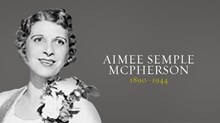News of McDonald's matriarch Joan Kroc's record-breaking $1.5 billion gift to the Salvation Army is little more than one week old, but already pundits have begun speculating about the dawn of a new era for the Army. Best known for its change-collecting bell ringers and innner-city relief work, the Salvation Army must now adapt to heightened public scrutiny and a radically altered fundraising paradigm.
Despite a seemingly obvious name, the Salvation Army's mission as an evangelical church is less known than its charitable work. However, its mission statement leaves no doubt: "The Salvation Army, an international movement, is an evangelical part of the universal Christian Church. Its message is based on the Bible. Its ministry is motivated by the love of God. Its mission is to preach the gospel of Jesus Christ and to meet human needs in His name without discrimination."
Still, observers have begun asking about the impact Kroc's super-sized gift will have on the Salvation Army's Christian convictions. Contrasting the modern Salvation Army with founder William Booth's nineteenth-century vision, the Los Angeles Timesdeclared, "Religion is no longer as strong a component of the organization's mission, but services are still held." This statement incited a strong response from a senior Salvation Army official. "Commitment to a Christian faith is what defines us and keeps us focused in the multitude of opportunities that are a part of the Salvation Army's daily work," Commissioner Linda Bond said. Yet if history is any guide, their future will be fraught with new trials and enticements.
Death by respectability
In early nineteenth-century America, there was no such thing as a wealthy Methodist. Circuit-riding preachers and other itinerant evangelists fanned the revival flames primarily among lower classes. Taking cues from founder John Wesley, who despite enormous earnings lived a meager existence, Methodist leaders found virtue in poverty. The only pride they fought did not reflect upper-class snobbery, but rather self-satisfaction with their humble plight. Francis Asbury even criticized upwardly mobile Quakers who capitalized on America's unique opportunities to become "respectable." "There is death in that word," Asbury warned.
By the mid-nineteenth century, however, Methodists began penetrating society's upper reaches. Power shifted away from the rural circuit-riding pastors, toward urban parish ministers bankrolled by their increasingly wealthy parishioners. Bishop Matthew Simpson, who started his career as a modest circuit rider but later became pastor of an upper-class church, exemplified the transition. He perceived that God wanted to bless Methodists for their hard work. And it didn't take long before he and other ministers realized how much they preferred wealth to poverty.
Shunning Wesley's preference for modest chapels, Simpson encouraged wealthy Methodists in Pittsburgh to build Christ Church, the first Gothic-style structure in the denomination. Similar churches sprung up in other urban centers. Yet the money came with conditions. The affluent laymen began expecting preferential treatment within the churches, just like they received in the business world. They demanded input with the churches' teaching content. Pastors hesitated to address topics that threatened to ruffle their benefactors' feathers.
Soon, groups intent on recapturing Wesley's vision began forming within the Methodist Church. They longed for simpler times when voluntary poverty marked the road to Christian righteousness. A prominent secession was the founding of the independent Free Methodist denomination in 1860. "Free" stood for freedom from sin, freedom for the slaves (abolitionism), and the elimination of the "pew rent" system under which wealthy patrons bought prominently placed pews in their churches. From this protest against Methodism's love affair with respectability sprouted the American holiness movement (the topic, by the way, of our Issue 82—mailing this coming May). The egalitarian, socially active Wesleyan holiness groups, historians have argued, did as much as liberal Protestants to create their age's "social gospel" movement. (See Timothy L. Smith, Revivalism and Social Reform and Donald W. Dayton, Discovering an Evangelical Heritage.)
Neither young, nor men, nor Christian
Few other movements in the mid-nineteenth century could match the impressive accomplishments of the Young Men's Christian Association (YMCA). By the 1850s, a mere 10 years after George Williams founded the YMCA in London, his centers had become an international hub for evangelistic activity and poverty relief. As European immigrants flooded U.S. cities on the eastern seaboard, the YMCA moved into slums to feed the hungry, treat the sick, and distribute Bibles.
Willing to overlook theological details for the sake of unified action, the YMCA gathered widespread support from Protestants. With the help of D.L. Moody, who championed its cause in the latter half of the century, the YMCA aggressively evangelized unchurched throngs. Moody himself declared that he owed more to the YMCA than to any other Christian organization.
While not renouncing its Christian heritage, today's YMCA has become thoroughly secular. The modern YMCA has retained many of its original objectives, including a commitment to serving the poor and strengthening communities, but has divorced these principles from their origins in Christian theology.
The reasons for this transition remain unclear. The YMCA's web-based history prominently features Christian leaders like Moody and John Mott, but mysteriously ceases to elaborate on the influence of Christianity after the Great Depression era. One explanation for this change could be that the YMCA simply shifted toward the "social gospel," which also—paradoxically, given the its roots in evangelical holiness groups—diminished the importance of orthodox Christian theology in many major Protestant denominations.
However, another development was at work. As with American Methodism earlier, during the early twentieth century the YMCA, with other parachurch organizations, became an arena in which wealthy laymen could flex their muscle. Inspired by the can-do attitudes of Presidents Theodore Roosevelt and Woodrow Wilson, these successful businessmen advocated practical Christianity while downplaying spiritual disciplines and churchly distinctives. They placed faith in results, leaving such unimportant matters as theology to the clergy. But the influence their wealth purchased undermined the clergy. Wilson critiqued pastors as being detached from the "real world," saying that the ministry was "the only profession which consists in being something," as opposed to doing something.
Big gift, big responsibility
Without their generous supporters, neither the Methodists nor the YMCA could have touched society so profoundly by fulfilling Christ's command to preach the good news and help the helpless. The Salvation Army has likewise been given a tremendous opportunity to expand their already impressive efforts to do the same. Yet God's work transcends business models and efficiency standards. The Lord will not be chained by practicality, and he finally cares as much about our hearts as our actions. For the road ahead, history warns the Salvation Army to beware of respectability and watch for falling theological standards.
Related article: The Blood-and-Fire Mission of the Salvation Army
Copyright © 2004 Christianity Today.Click for reprint information.

Support Our Work
Subscribe to CT for less than $4.25/month




























